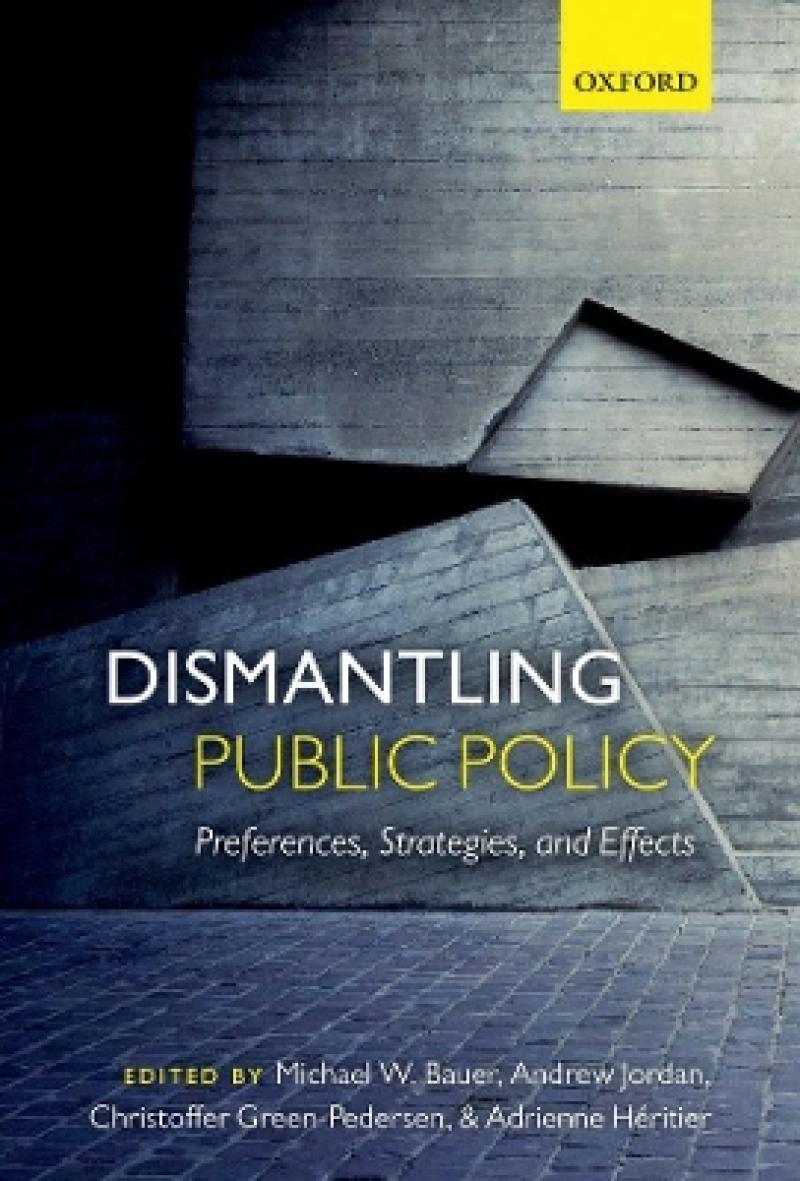`Policy dismantling is a subject which has been studied before but only in a few countries and sectors and without ever arriving at definitive conclusions about the forces, actions and patterns of policy-making behaviour which result in or lead to this type of policy change. This excellent collection of articles by leading policy scholars moves this discussion forward through case study and comparative analyses of instances of policy termination in North America and Europe. It distinguishes between cases of active dismantling, largely symbolic terminations and 'dismantling by default' when policies are simply allowed to lapse, and in so doing helps to bring order and clarity to this important aspect of public policy-making.'
Michael Howlett, Burnaby Mountain Professor, Simon Fraser University
`n this, the first book of its kind, a team of distinguished scholars looks seriously at cases of policy retrenchment or elimination. They find that political leaders find many benefits in cutting, that social actors do not necessarily erupt in protest, and that policies are indeed routinely dismantled in many countries. The book charts a new course towards a theory of policy change that would encompass both the creation of new programs as well as the elimination of old ones. One cannot have one without the other. And we cannot have a theory of policy change without a theory of policy elimination'
Frank R. Baumgartner, Distinguished Professor of Political Science, University of North Carolina at Chapel Hill
`This is a terrific book about an extraordinarily important and woefully under-theorized topic - when and how politicians try to dismantle policies in place, and what determines their success or failure in doing so. The authors provide a useful conceptual framework for understanding the micro-foundations and strategic options for dismantling as well as assessing its impact across policy sectors. In addition, the rich case studies in Dismantling Public Policy make the volume "state of the art" in comparative policy research. As austerity concerns become ever more central to policymaking in western industrial societies, the analysis in this volume will provide theoretical and methodological guidance to researchers for years to come.'
R. Kent Weaver, Georgetown University and the Brookings Institution
